- Home
- Anne Bennett
Forget-Me-Not Child Page 3
Forget-Me-Not Child Read online
Page 3
‘Good girl,’ Barry said with a beam of approval and he reached for her hand as he said, ‘We best go back now because we’ll probably be going to an early Mass and we daren’t be too late.’
Everyone was up at the Dochertys’ and Mary asked where they had both been and would have gone for Barry when he attempted to explain, but Norah forestalled her. ‘It was obvious Angela would wake early,’ she said to Mary, ‘because she had her sleep out and it was good of Barry to take her downstairs and let us have a bit of a lie in.’
‘But to take food without asking!’
‘Well he couldn’t ask me without waking me up first and that wouldn’t have pleased me at all,’ Norah pointed out and added with a little laugh, ‘It was just a bit of bread and it’s understandable that Angela would be hungry. Don’t be giving out to them their first morning here.’
‘I was starving,’ Angela said with feeling.
‘Course you were,’ Norah said. ‘You hadn’t eaten for hours.’
Barry let out a little sigh of relief, very grateful to Mrs Docherty for saving him from the roasting he was pretty sure he had been going to get from his mother, and when she said, ‘Anyway come up to the table now for I have porridge made for you two and Sammy and Siobhan,’ the day looked even better.
St Catherine’s Catholic Church was just along Bristol Street, no distance at all, and Norah pointed out Bow Street off Bristol Street where the entrance to the school was. ‘I will be away to see about it tomorrow,’ Mary said. ‘I hope they have room for Barry and Gerry for I don’t like them missing time. Wish I could get Angela in too because she’s more than ready for school.’
‘I thought that with Siobhan and was glad to get her in in September,’ Norah said. ‘I think when they have older ones they bring the young ones on a bit.’
‘You could be right,’ Norah said. ‘I know our Angela is like a little old woman sometimes, the things she comes out with.’
‘Oh I know exactly what you mean,’ Mary said with feeling. ‘Mind I wouldn’t be without them and I did miss the boys last night. Be glad to see them at Mass this morning.’
The boys were waiting for them in the porch and they gave their anxious mother a good account of Stan Bishop and his wife Kate, who they said couldn’t have been kinder to them. That eased Mary’s mind for her children had never slept apart from her in a different house altogether and she thought it a funny way to go on, but the only solution in the circumstances.
After Mass, Norah introduced them to the priest, Father Brannigan, and he was as Irish as they were. Mary’s stomach was growling embarrassingly with hunger and she hoped he couldn’t hear it. She also hoped meeting him wouldn’t take long so she could go home and eat something, but she knew it was important to be friendly with the priest, especially if you wanted a school place for your children. Matt understood that as well as she did and they answered all the questions the priest asked as patiently as possible.
It might have done some good though, because when he heard the two families were living in a cramped back-to-back house with the older boys farmed out somewhere else, he said he’d keep his ear to the ground for them.
‘Well telling the priest your circumstances can’t do any harm anyway,’ Norah said. ‘Priests often get to know things before others.’
‘No harm at all,’ Mary agreed. ‘Glad he didn’t go on too long though or I might have started on the chair leg. Just at the moment my stomach thinks my throat’s been cut.’
It was amazing how life slipped into a pattern, so that living with the Dochertys and eating in shifts became the norm. Gerry and Barry were accepted into St Catherine’s School and went there every day with all the Docherty children and Angela was on the waiting list for the following year when she would be five. Better still, Stan Bishop said he could get Sean into the apprentice scheme to be a toolmaker and Gerry could join him in two years’ time, and he could find a labouring job for Matt the same as Mick, so that by the beginning of June the two men and the boy Sean were soon setting off to work together.
Sadly, Stan could find nothing for the two older boys who were too old for the apprentice scheme, which had to be started at fourteen, and there was no job for them in the foundry. They were disappointed but not worried. It wasn’t like living in rural Donegal. Industrial Birmingham was dubbed the city of one thousand trades and just one job in any trade under the sun would suit Finbarr and Colm down to the ground.
So they did the round of the factories as Stan advised, beginning in Deritend because it was nearest to the city centre and moving out to Aston where the foundry was. They started with such high hopes that surely they would be taken on somewhere soon. ‘The trick,’ Stan said, ‘is to have plenty of strings to your bow. Don’t go to the same factory every day because they’ll just get fed up with you but don’t leave it so long that they’ve forgotten who you are if they have given you any work before. And if you’re doing no good at the factories go down to the railway station and offer to carry luggage. It’s nearly summer and posh folk go away and might be glad of a hand and porters are few and far between. Or,’ he added, ‘go to the canal and ask if they want any help operating the locks or legging the boats through the tunnels.’
‘What’s that mean, “legging through the tunnel”?’
‘You’ll find out soon enough if they ask you to do it,’ Stan said with a smile. ‘Just keep going and something will turn up I’m sure.’
They kept going, there was nothing else to do, but sometimes they brought so little home. Everything they made they gave to their mother but sometimes it was very little and sometimes nothing at all. They felt bad about it, but Mary never said a word, as she knew they were trying their best, and while they were living with the Dochertys money went further, for they shared the rent and the money for food and coal. But she knew it might be a different story if ever they were to move into their own place.
However, that seemed as far away as jobs for her sons, but life went on regardless. Barry did make his First Holy Communion with the others in his class, and not long after it was the school holidays and they had a brilliant summer playing in the streets with the other children. Mary wasn’t really happy with it, but there was nowhere else for them to play. Anyway all the other mothers seemed not to mind their children playing in the streets, but she was anxious something might happen to Angela. ‘You see to her, Barry,’ she said.
‘I will,’ Barry said. ‘But she can’t stay on her own in the house. It isn’t fair. Let her play with the others and I’ll see nothing happens to her.’
‘Don’t know what you’re so worried about,’ Norah said. ‘That lad of yours will hardly let the wind blow on Angela.’
‘I know,’ Mary said. ‘He’s been like that since Angela first came into the house, as if he thought it was his responsibility to look after her. He’s a good lad is Barry and Angela adores him.’
‘He’s going to make a good father when the time comes I’d say,’ Norah said.
‘Aye. Please God,’ Mary said.
Angela thought it was great to be surrounded by friends as soon as she stepped into the street. She had been a bit isolated at the farm. Funny that she never realized that before, but having plenty of friends was another thing she decided she liked about living in Birmingham.
Christmas celebrated by two families in the confines of one cramped back-to-back house meant there was no room at all, but plenty of fun and laughter. There was food enough, for the women had pooled resources and bought what they could, but there was little in the way of presents for there was no spare money. Many of the boots, already cobbled as they were, had to be soled and heeled and Mary took up knitting again and taught Norah. The wool they got from buying old cheap woollen garments at the Rag Market to unravel and knit up again so that the families could have warmer clothes for winter.
January proved bitterly cold. Day after day snow fell from a leaden grey sky and froze overnight, so in the morning there was frost formed on the insi
de of windows in those draughty houses. Icicles hung from the sills, ice scrunched underfoot and ungloved fingers throbbed with cold.
Life was harder still for Finbarr and Colm toiling around the city in those harsh conditions to try and find a job of any sort to earn a few pennies to take home. So many factory doors were closed in their faces and when the cold eventually drove them home they would huddle over the fire to still their shivering bones and feel like abject failures. No one could help and neither of them knew what they were going to do to help ease the situation for the family.
Slowly the days began to get slightly warmer as Easter approached. Angela would be going to school in the new term and she was so excited. She was just turned five when she walked alongside Mary for her first full day at school on April 15th. She was so full of beans it was like they were jumping around inside her. At the school she was surrounded by other boys and girls all starting together and they regarded each other shyly. When their mothers had gone their teacher, Miss Conway, took them into the classroom, which she said would be their classroom, and told them where to sit.
Angela was almost speechless with delight when she realized she had a desk and chair all to herself. After living with the Dochertys for months, she was used to sharing everything. She looked around and noticed what a lot of desks there were in the room, which was large with brown wooden walls and very high windows with small panes. There were some pictures, one with numbers on it, one with letters, and a map above the blackboard that stood in front of the high teacher’s desk.
Another little girl was assigned the desk next to Angela and she turned to look at her, envying the pinafore she wore covering her dress. In fact most of the girls wore pinafores but her Mammy said funds didn’t run to pinafores and she knew better than to make a fuss over something like that. The girl had straight black hair that fell to her shoulders and dark brown eyes, but her lips looked a bit wobbly as if she might be about to cry and her face looked as if she was worried about something, so Angela smiled at her and the little girl gasped. What the little girl thought was that she’d never seen anyone so beautiful with the golden curls and the deep blue eyes and pretty little mouth and nose. Spring sunshine shafted through the tiny windows at that moment and it was like a halo around Angela’s head. ‘Oh,’ said the little girl with awe. ‘You look like an angel.’
Angela laughed, bringing the teacher’s eyes upon her. She thought maybe laughing wasn’t allowed at school and she was to find that it wasn’t much approved of. Nor was talking, for when she tried whispering to the other girl, ‘I’m not an angel, I just look like my mother,’ the teacher rapped the top of her desk with a ruler, making most children in the room jump. ‘No talking,’ she rapped out and Angela hissed out of the corner of her mouth, ‘Tell you after.’
And later, in the playground, she told the whole story of how she ended up living with the McCluskys, according to what Mary had told her. ‘Funny you thought I looked like an angel,’ she said. ‘Because my real mammy thought so too and she insisted I was called Angela. All the others looked like my father.’
‘And they all died,’ the girl said. ‘And your mammy and daddy as well?’
Angela gave a brief nod and the other girl said, ‘I think that’s really sad.’
Angela shook her head. ‘It isn’t really, because I can’t remember them at all. Mammy, I mean Mary, has a photograph of them on their wedding day. It was stood on the dresser at home and I suppose it will come out again when we have our own house, but I have stared at it for ages and just don’t remember them. And Mary and Matt McClusky have loved me as much as if I had been one of their own children and the boys are like brothers to me.’
‘Huh,’ said the other girl, ‘I have no time for brothers. I have two, both younger than me, and a proper nuisance they are.’
Angela laughed and said, ‘What’s your name?’
‘Maggie. Maggie Maguire and my brothers are called Eddie and Patrick. But I think Mammy is having another one and that will probably be a boy as well. I’d love a sister.’
‘So would I,’ Angela admitted. ‘Shall we just be good friends instead?’
‘Yes, let’s.’ And so a bond was formed between Angela Kennedy and Maggie Maguire from that first day.
THREE
Just after Angela began school, the priest heard of a house that would shortly be vacant due to the death of the tenant and Mary went straight down to see the landlord. She took her marriage lines with her and the birth certificates of the children and to prove her honesty she carried a recommendation from the priest and she secured the house, which was in Bell Barn Road and only yards from Maggie’s house in Grant Street.
Mary was delighted to get a place of her own though she did wonder how she would furnish it, but when she said this to Matt he had a surprise for her. ‘With the sale of the farm and land I had money over when I bought the tickets to get here,’ he told her. ‘Not knowing when I would get a job when we arrived, I put it in the Post Office and it’s still there, so we’ll go off to the Bull Ring Saturday afternoon and see what we can pick up to make the place more homely at a reasonable price.’
Mary was really pleased that Matt had kept the money safe and that he had kept knowledge of it to himself as well, or she might have been tempted to dip into it from time to time, and where would they be now if she had done that? They’d have a house but not a stick of furniture to go into it.
In fact it wouldn’t have been that bad because the previous tenant had died and his family didn’t want much of his furniture, so the house already had two armchairs, a small settee and a sideboard downstairs, and a bed and wardrobes were left in the bedroom upstairs. Norah went to inspect the house and agreed with Mary it needed a thoroughly good clean before anything else and they undertook that together. In the Bull Ring Mary and Matt bought oilcloth for the floor, a big iron-framed bed for the boys in the attic and two chests for their clothes. For Angela there was a truckle bed that was to be set up in the bedroom because Mary declared it wasn’t seemly for her to share the attic with so many boys when she was not even officially related to them.
The purchases severely depleted Matt’s savings and money from day to day was tighter than ever and Norah was finding it hard to make the money stretch. If some days they seemed to eat a lot of porridge it was because a pair of boots needed repair or there was a delivery of coal to pay for. Mary worried about the meals often. ‘Men need more than porridge,’ she said to Norah. ‘If Finbarr and Colm do get a job they’ll hardly be able for it and Matt works hard now and needs good food or he might take sick.’
Sometimes she would take Angela with her when she went to the Bull Ring on a Saturday afternoon and she would hide away and send Angela into the butcher’s and ask for a bone for the dog. The butcher knew there was little likelihood of there being any sort of dog; most people had trouble enough feeding themselves. But he would be charmed by the look of Angela, her winning smile and good manners, and she usually came out with a bone with lots of meat still on it. Often the butcher would slip her something else, like a few pieces of liver, or a small joint because he would have to throw them away anyway at the end of the day.
And Mary would boil up the bones and strip them of meat for a stew along with vegetables and dumplings to fill hungry men. She would do the same with pigs’ trotters if she had the pennies to buy them. She could make a couple of loaves of soda bread almost without thinking about it and if there was no money for butter, mashed swede would do as well. Cabbage soup was also on the menu a lot so though no one starved, the monotony of the diet got to everyone, but no one complained for there was little point.
Finbarr and Colm were filled with shame that they couldn’t do more to help and knowing this, Gerry felt almost embarrassed to join Sean on the apprenticeship scheme in 1902 when he turned fourteen and left school. ‘Don’t feel bad about it,’ Finbarr said. ‘You go for it. I would do the same given half a chance.’
Both apprentice boys were full
of praise for Stan Bishop and thought he was a first-rate boss, always patient with them if they made mistakes in the early days. ‘He’s a decent man,’ Mary said. ‘I always thought it.’
‘He’s a happy bloke, I know that,’ Sean said. ‘He’s always humming a tune under his breath and he sings at home.’
‘He does that,’ Colm said. ‘He’s good, or it sounds all right to me anyway, and Kate has a lovely voice.’
‘Well she’s in the choir,’ Mary pointed out. ‘That’s why they always go to eleven o’clock Mass. She sometimes sings when she is in the house on her own because I have heard her a time or two when I have been up visiting Norah. She has got a lovely voice, but then she seems a lovely person. She always seems to have a smile on her face.’
She had. It was evident to everyone how happily married they were and there was speculation why there had been no sign of a child yet, though Mary had confided to Norah that she thought Kate looked rather frail. ‘I don’t think it would do her good to have a houseful of children,’ she said. ‘It would pull the body out of her.’
‘We none of us can do anything about that though,’ Norah said. ‘It’s God’s will. The priests will tell you that you must be grateful for whatever God sends, be it one or two or a round dozen.’
‘I know,’ Mary said and added, ‘They’re quick enough to give advice. But no one helps provide for those children, especially with jobs the way they are.’
‘I know,’ Norah said. ‘And then wages are not so great either. I mean, my man’s in work and I am hard pressed to make ends meet sometimes. At least Sean and Gerry are learning a trade, that’s lucky.’
‘Aye, if there is a job at the end of it.’
‘There’s the rub,’ Norah said, because many firms would take on apprentices on low pay and get rid of them when they were qualified and could command far better wages, and take on another lot to train as it was cheaper for them.

 As Time Goes By
As Time Goes By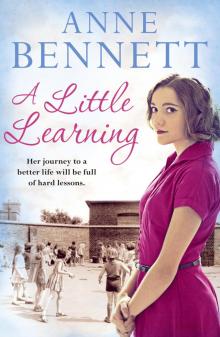 A Little Learning
A Little Learning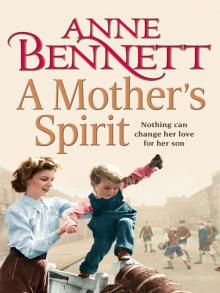 A Mother's Spirit
A Mother's Spirit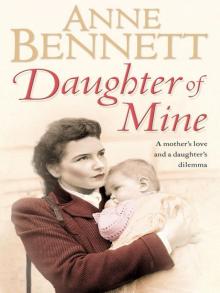 Daughter of Mine
Daughter of Mine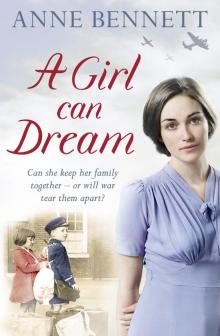 A Girl Can Dream
A Girl Can Dream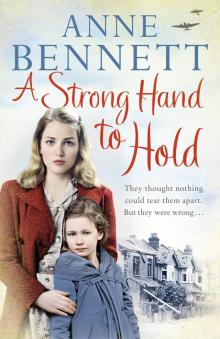 A Strong Hand to Hold
A Strong Hand to Hold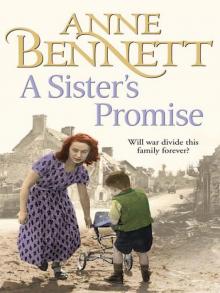 A Sister's Promise
A Sister's Promise To Have and to Hold
To Have and to Hold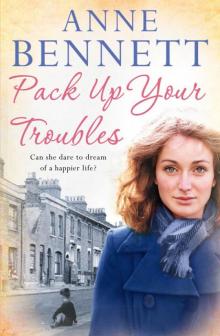 Pack Up Your Troubles
Pack Up Your Troubles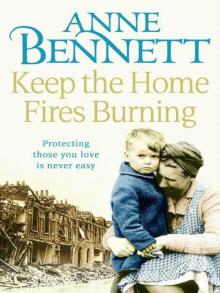 Keep the Home Fires Burning
Keep the Home Fires Burning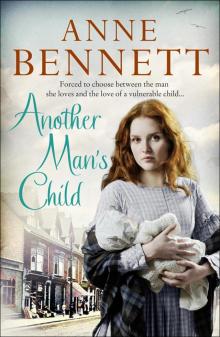 Another Man's Child
Another Man's Child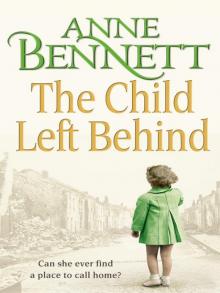 The Child Left Behind
The Child Left Behind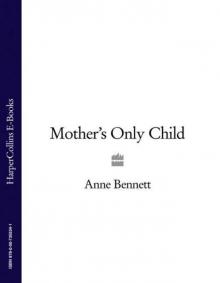 Mother’s Only Child
Mother’s Only Child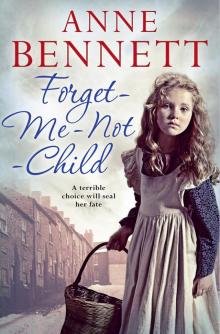 Forget-Me-Not Child
Forget-Me-Not Child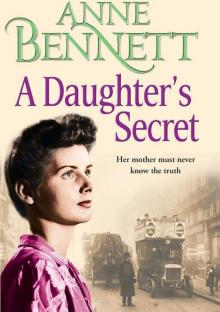 A Daughter's Secret
A Daughter's Secret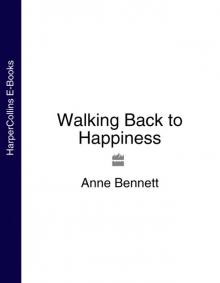 Walking Back to Happiness
Walking Back to Happiness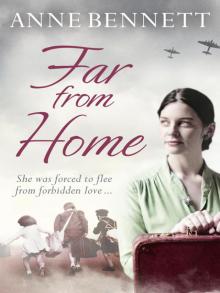 Far From Home
Far From Home Till the Sun Shines Through
Till the Sun Shines Through